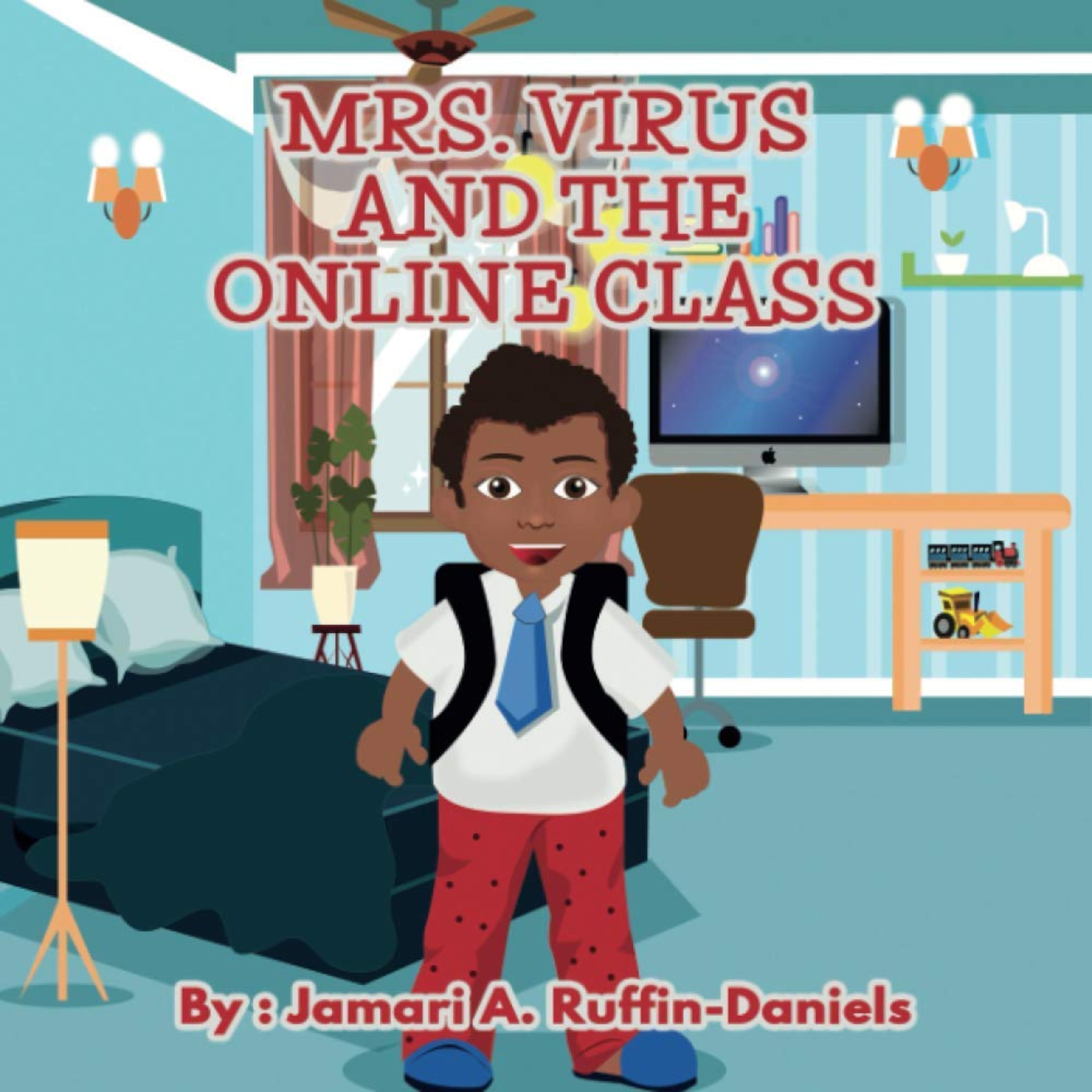DeKalb 2nd grader publishes book about learning during the pandemic

All Jamari Ruffin-Daniels wanted for Christmas was a book. Not a bike, or gadgets or toys. The 8-year-old wanted to write his own book.
His mother, Nakesha Jackson, was surprised at his request, but wanted to make it happen. Ruffin-Daniels is a natural writer, she said — where other students in his classroom struggle through writing assignments, he fills page after page. Jackson wanted to show her son that writing is something he can pursue.
“A lot of parents spend so much money on Christmas gifts and it’s the same toys that come out every year,” said Jackson, an Atlanta-based bookkeeper. “When he said a book, I knew we could do this.”
Within two months, Ruffin-Daniels wrote a 29-page rhyming storybook about the impact of the coronavirus, social distancing and virtual learning on children titled, “Mrs. Virus and the Online Class.” Though his mother helped organize his ideas, the characters and words are his.

A second grader at Marbut Traditional Theme School in DeKalb County, Ruffin-Daniels wrote the book out of frustration for virtual learning. The book follows a fictionalized version of himself navigating a normal day in virtual learning and explaining how COVID-19, dubbed the elusive “Mrs. Virus,” has ruined his fun in school.
He incorporated his friends and teachers at Marbut in the book, many of whom purchased copies at a book signing he held in late March upon returning to what Ruffin-Daniels calls “real school” — face-to-face instruction.
The writing and editing process was the easier half of publishing the book, Jackson said. What she and her son struggled with, however, was finding an illustrator. Cost played a major role in pinpointing the right person for the job, but of the few Atlanta-based illustrators she found at a manageable price, even fewer had a style that matched the tone of the book. Ruffin-Daniels wanted something colorful and cartoonish — nothing too serious or elaborate.
So, Jackson took to Fiverr, an online marketplace where freelancers offer services across a wide variety of price points. She quickly found an illustrator that could work within an affordable price range — for 29 pages of illustration, she paid roughly $400. It was an investment, she said, but she knew it was something he wanted to do.
The book hasn’t outsold its cost of production, but it was never intended to outsell in the first place — it was more about seeing Ruffin-Daniels’ hard work manifested in physical form, said his mother. The book is a keepsake. Still, “Mrs. Virus and the Online Class” is selling modestly through Amazon at $14.99, which Ruffin-Daniels and Jackson did not expect.
Ruffin-Daniels is not sure if he wants to pursue writing as a career. For now, he has his sights set on becoming a dentist and playing soccer. There’s nothing wrong with doing all three, Jackson tells her son — the exact message she wanted to send when publishing his book.
“I’m super proud — I’m glad he’s thinking out of the box,” Jackson said. “I want to make sure he knows he can continue writing. It’s something he can do.”



